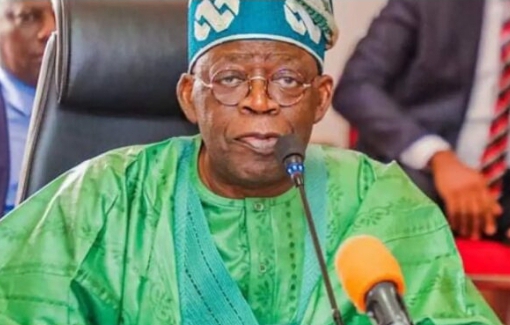In today’s rapidly evolving world, governments are confronted by the challenge of sufficient revenue to fund essential services and infrastructure. Expanding the taxpayer base is key to generating the revenue needed to address the needs of a growing population. One promising solution that merits serious consideration is the implementation of direct tax deductions from every bank transaction. This approach can revolutionize the tax system, making it more efficient, transparent, and inclusive for all.
Read Also: Transform Nigerian Local Councils into Agric Development Centres to Enhance Productivity
Increasing the number of taxpayers is a crucial step to creating a sustainable tax system in Nigeria. To make the taxation system more efficient, various strategies can be used to include individuals or entities who are currently not meeting their tax obligations to increase the number of taxpayers and the amount of revenue generated through taxes. One effective strategy is to implement direct tax deductions from every bank transaction. This means that a certain percentage of money from every banking transaction will be automatically deducted as tax. By introducing this measure, the government will aid taxpayers to fulfil their obligations and promote a culture of responsible tax payment. This way, every financial transaction will contribute to the overall revenue collected.

To ensure that direct tax deductions are successfully implemented, banks and government tax agencies must collaborate. Banks can act as intermediaries in the deduction process, making sure that the correct tax amounts are accurately deducted from fresh deposits. The actual percentage tax to be paid will be determined and spread on transactions. For instance, if the tax percentage is 6%. To make the payment process more convenient for citizens, a 6% tax amount can be deducted from each deposit transaction made through the bank. This would be a manageable amount for the individual, making it easier for them to pay their taxes. A practical example of this approach can be seen in the value-added tax (VAT) system where a certain percentage of the value is added to the price of goods and services, and the tax is collected at each stage of the supply chain. When a consumer purchases an item or uses a service, the tax is included in the final price they pay. This way, individuals pay taxes on their transactions without having to bear a large tax burden upfront.
Read Also: The Future of Nigeria Without Petroleum Subsidy
Moreover, Government can develop strategies to incorporate informal businesses into the official tax system by promoting the use of electronic payments instead of cash. For example, the government can promote the adoption of mobile payment apps that enable individuals and businesses to conduct transactions electronically. Governments can make it mandatory for businesses, especially those operating informally, to use point-of-sale (POS) systems for their sales transactions. This means that all the sales made by these businesses would be recorded electronically. This electronic record-keeping makes it easier for tax authorities to monitor their income and ensure they pay the appropriate taxes. Shifting towards a cashless economy simplifies the monitoring of financial activities and ensures that everyone fulfils their tax obligations. In this way, tax authorities can prevent tax evasion. However, it’s important to note that transitioning to a cashless economy, should be accompanied by measures to ensure the security of data and support for individuals who may face challenges in adopting electronic payment systems.

To effectively keep an eye on the bank, the government can simply use technology to improve its monitoring efforts. For example, advanced software systems can be used to analyze the bank’s financial data in real-time. These systems will identify any suspicious transactions or patterns that might indicate wrongdoing, such as money laundering or fraud. Additionally, the government can use artificial intelligence (AI) algorithms to continuously monitor the bank’s operations and detect any unusual actions or irregular activities in large amounts of data, allowing authorities to act quickly. Machine learning models can also be employed to analyze past data and figure out if the bank has failed to meet its obligations. In addition, tax experts can team up with the Central Bank to monitor bank transactions by conducting regular audits and inspections. By utilizing a blend of oversight from the Central Bank and advanced technology, the government can guarantee that the bank complies with established rules and regulations.

Eliminating multiple taxations is crucial for motivating people to willingly follow tax laws. Multiple taxations occur when individuals are taxed multiple times on the same income or assets, which puts a financial strain on them and makes them less inclined to meet their tax obligations. For instance, when a company pays dividends to its shareholders, both the company and the individual shareholders may be taxed on the same income. This creates multiple taxations because the company already pays corporate tax on its profits, and then the individual shareholders are taxed again when they receive the dividends. Another example is when an individual invests in a business, and the state government imposes taxes on the income generated from those investments, the business owner may also have to pay taxes to the Local Council. This multiple taxations significantly reduces the returns on investment and discourages individuals from participating in investment activities.
Read Also:2023 Population Census: A Necessity for Addressing Nigeria’s Problems
To address these challenges, comprehensive tax reforms are necessary which may include implementing tax treaties and agreements between different jurisdictions and harmonizing tax laws across jurisdictions. By reducing the burden of double taxation, governments can motivate individuals to fulfil their tax responsibilities willingly. Moreso, tax laws and regulations are written using complicated language that can confuse the average taxpayer. To ensure that everyone pays their taxes, it’s important to address this complexity by simplifying the language used in tax guidelines and providing clear explanations and examples so that citizens can better understand their tax obligations. Many individuals struggle to understand the complicated tax processes.

The government also needs to conduct the population census exercise to identify citizens who need to pay taxes in a specific city and determine their income. Residents are counted and information is collected about their income through a population census. This helps them identify citizens who should pay taxes based on their income. To have an accurate database of its citizens, a country may decide to merge different identification numbers by bringing together the Bank Verification Number (a unique number connected to a person’s bank account), the National Identity Number (a unique number given by the government), and the Phone Number (a personal contact number). By combining these three pieces of information, the government can maintain a complete and reliable database for each citizen. This ensures accurate records for various purposes, such as taxation, social services, and verifying people’s identities.
In conclusion, embracing this progressive measure is not only crucial for expanding the taxpayer base but also holds the key to fostering a more equitable and sustainable tax system in Nigeria. By restructuring tax procedures, collaborating with banks for seamless deductions, and advocating for a cashless economy, we can establish an environment where every citizen fulfils their tax responsibilities. This concerted effort will result in curbing tax fraud, reducing the reliance on excessive tax personnel, increasing revenue for the government and empowering the government to deliver vital services and infrastructure for the betterment of all Nigerians.
Idowu E. Faleye, a certified Data Analyst, Political Activist, and writer, is a graduate of Politics & Public Administration. He’s the Founder/Chief Data Officer at EphraimHill Data Blog –a Data Reporting Site that is niche in Politics & Society. He can be reached at +2348132100608. or ephraimhill01@gmail.com












































![The Trend of Insecurity in Nigeria. [Part 2]](https://ephraimhilldc.com/wp-content/uploads/2024/09/Computer-Monitoring-of-Remote-areas.png)


































